Du-Lab Research
Computational Metabolomics, Exposomics, and Proteomics
People
Principal Investigator
- Xiuxia Du, Ph.D., Professor
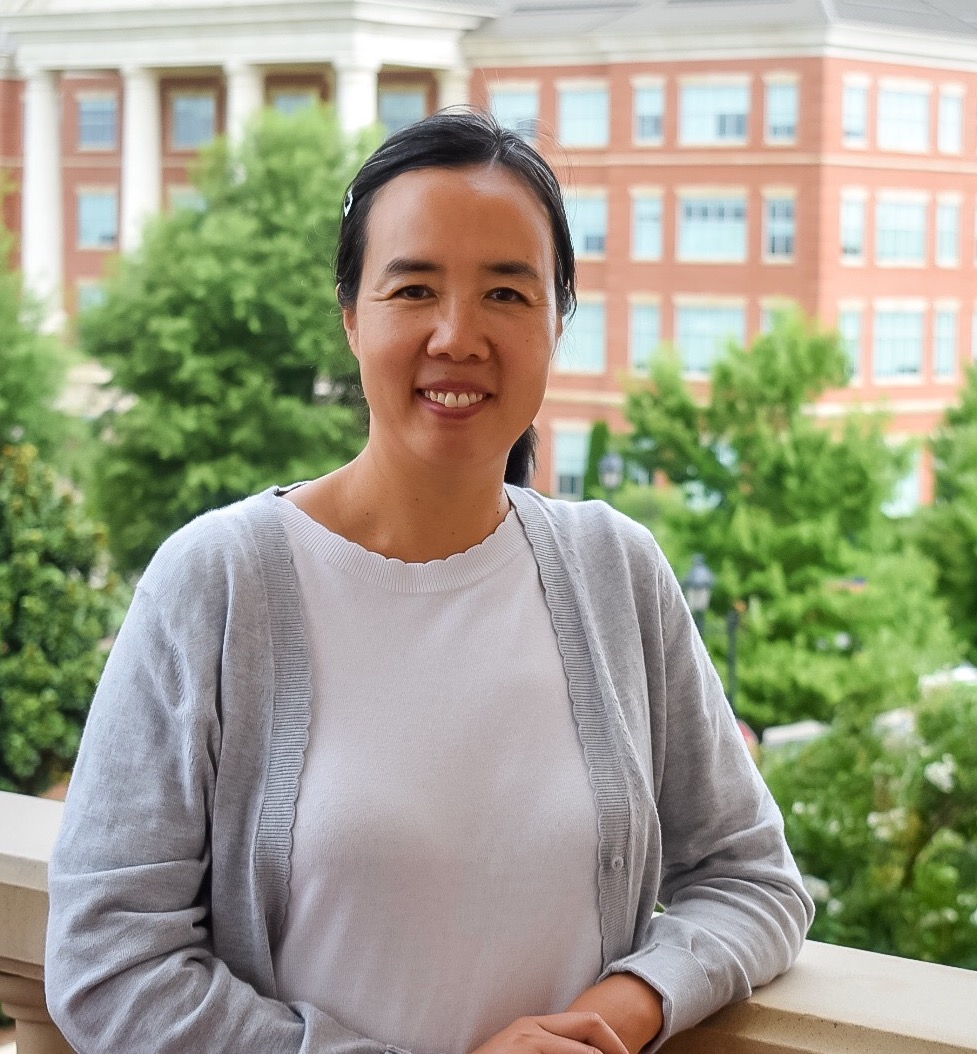
Dr. Du obtained her Bachelor's and Master's degree in Electrical Engineering in China. She obtained her Ph.D. degree in Systems Science and Mathematics from Washington University in St. Louis under the mentorship of Prof. Bijoy Ghosh. She did her postdoctoral research on computational proteomics at the Pacific Northwest National Laboratory under the mentorship of Dr. Richard Dick Smith. She joined UNC-Charlotte in 2008 as a tenure-track assistant professor and has expanded her research to include computational metabolomics and exposomics.
Current Lab Members
- Aleksandr Smirnov, Ph.D., Research Assistant Professor and Project Manager
- Jun Wang, Ph.D., Research Professor and Lab Manager
- Toan Nguyen, Full-time Software Developer
- Hussian Maanaki, Ph.D. student
- Radha Krishna Balaji Ponnuru, master's student
- Komal Madamwar, master's student
- Shanmukh Gorle, master's student
- Anantnaval Gaikwad, master's student
- Steffy Roselina Eben Judson, master's student
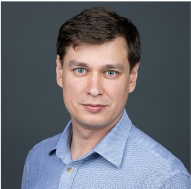
Aleksandr obtained his bachelor's degree in mathematics from the Chuvash State University in Russia, the Russian analogue of Ph.D. degree in mathematics from the Gubkin Russian State University of Oil and Gas in Russia, and Ph.D. in mathematics from Louisiana State University. He joined the Du-Lab in June of 2016 as a postdoc, was transitioned to a Research Associate in June of 2019, and transitioned to a Research Assistant Professor in March 2021.
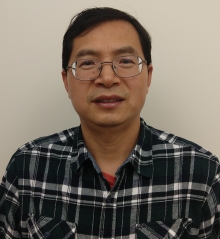
Wang obtained his B.S degree in Environmental Monitoring, M.S. and Ph.D. in Analytical Chemistry. He has been working with Du since October of 2019.

Toan obtained his B.S degree in Computer Science and joined the Du-Lab in September of 2022.

Hussian obtained his B.S. in Mechanical Engineering and is pursuing his Ph.D. degree in Bioinformatics and Computational Biology.

Radha is pursuing his Master's degree in Computer Science.

Komal is pursuing his Master's degree in Computer Science.

Shanmukh is pursuing his Master's degree in Computer Science.
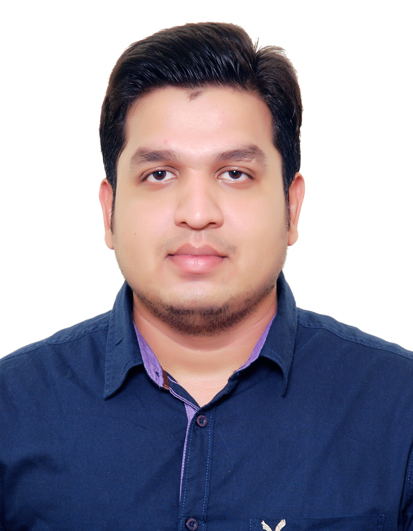
Anantnaval is pursuing his Master's degree in Computer Science.

Steffy is pursuing his Master's degree in Computer Science.
Past Postdoctoral Fellows
- Rasmus Erlemann
- Tia Tate
- Letu Qingge
- Owen Myers
- Wenchao Zhang
- Wenxin Jiang
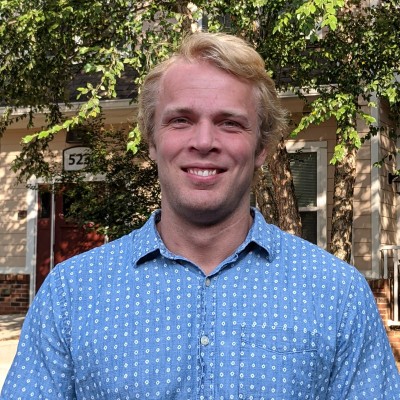
Rasmus' research at the Du lab focused on goodness-of-fit analysis.
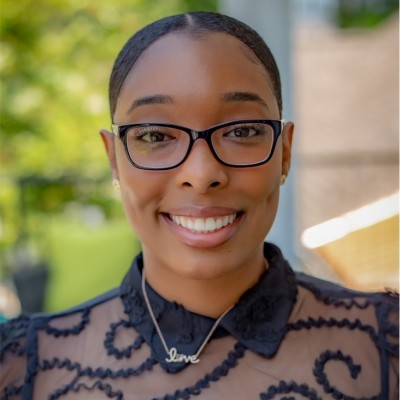
Tia's research in the Du-Lab focused on comparing ADAP with Progeness for preprocessing mass spectrometry-based metabolomics data and integrating metabolomics data with genomics data. Tia joined the Environmental Protection Agency as a postdoc after her time in the Du-Lab.

Letu's time in the Du-Lab was very short. He is now an Assistant Professor at the North Carolina A&T State University.
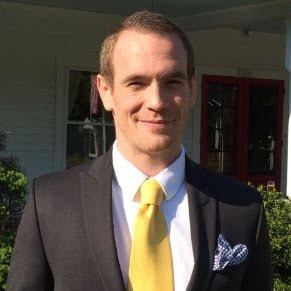
Owen's research at the Du lab focused on investigating the causes of false positive and false negative peaks detected by XCMS and MZmine 2 from untargeted metabolomics data and developing algorithms to reduce the rate of false positive and false negative peaks. His research results are published in Analytical Chemistry. Owen joined Sharp Action as a Data Engineer after finishing his postdoc in the Du-Lab. Owen obtained his BA in Physics and Ph.D. in Materials Science from the University of Vermont.
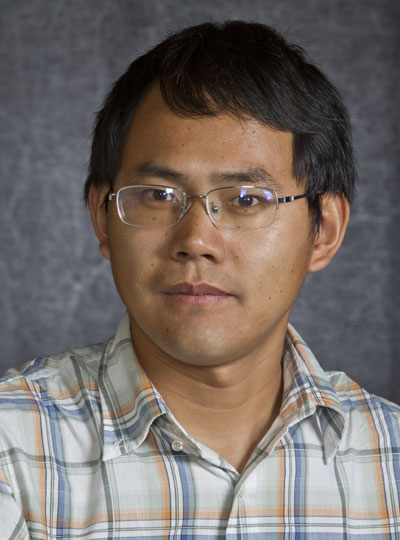
Wenchao's work in the Du lab included learning and making changes to the existing Xlink-Identifier and developing the computational algorithm for processing liquid chromatography mass spectrometry-based (LC/MS) metabolomics data. He obtained his Ph.D. degree in communication from the Institute of Electronics, Chinese Academy of Sciences. He joined the Samuel Roberts Noble Foundation as a bioinformatics research analyst after finishing his postdoc in the Du-Lab.
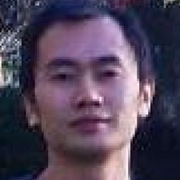
Wenxin's research at the Du lab focused on developing the computational algorithms for ADAP-GC. He pionered the development of ADAP-GC 1.0 and also developed part of version 2.0. His research results are published in the Journal of Proteome Research. Wenxin obtained his Ph.D. degree in computer science from UNC-Carolina. He joined the Fred Hutchinson Cancer Research Center as a bioinformatician after finishing his postdoc in the Du-Lab.
Past Ph.D. Graduate Students
- Daisy Brumit
- Ciara Conway
- Yunfei Liao
- Lida Safarnejad
- Terry Rabinowitz
- David Patton
- Yan Ni
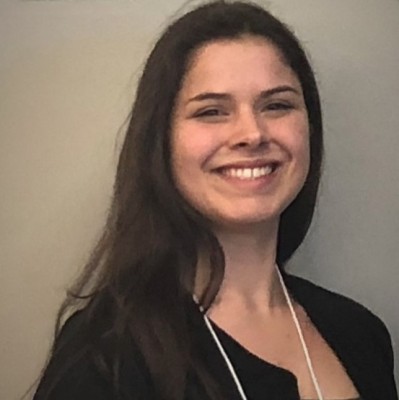
Daisy obtained her Bachelor of Science degree in Statistics from North Carolina State University. During her time in the Du-Lab, she worked on separate computational workflows for predicting compound retention time index, for machine learning analysis, and for batch-effect correction.
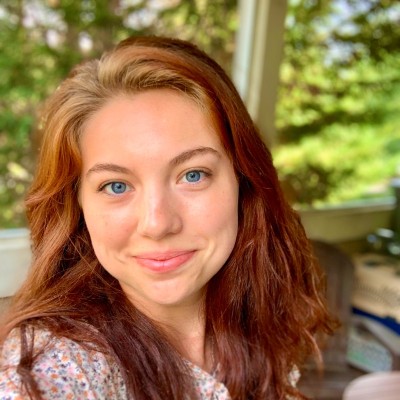
Ciara obtained her Bachelor of Science degree in Chemistry at UNC-Charlotte. During her time in the Du-Lab, she worked on developing a computational workflow for compound prediction and writing python scripts for linking metabolites with metabolic pathways and diseases.
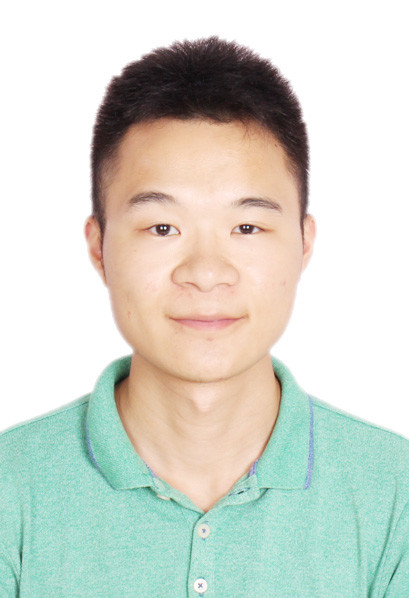
Yunfei Liao obtained his Master of Science degree in both Materials Engineering and Information Technology. Yunfei worked two years in a software company in China before coming to U.S. for his Master of Science degree in Information technology. While in the Du-Lab, he focused on harmonizing metabolomics data and speeding up metabolomics spectral library search for GC-MS data and is a co-author on two publications.
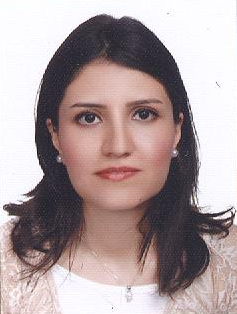
Lida received her B.S. in Applied Mathematics from Ferdowsi University of Mashhad, Iran and M.S. from the Mathematics and Computer Science Department, Amirkabir University of Technology (Tehran Polytechnic), Tehran - Iran. Her work in the Du-Lab focused on developing ADAP-3D.

Terry's research at the Du-lab focused on developing a deep learning neural network model to predict compounds based on GC/MS spectra. Terry obtained a BS in Biochemistry from SUNY at Stony Brook, a BS in Computer Science from UNCC, and an MS in Biophysics from University of Rochester, NY.

David obtained his Bachelor of Science degree in mathematics from the UNC-Charlotte. He worked on ADAP peak detection in the Du-Lab.

Yan's research at the Du-lab focused on developing ADAP-GC. She worked closely with Wenxin and developed ADAP-GC 1.0 and ADAP-GC 2.0. In addition, she developed ADAP-GC 3.0. The title of her Ph.D. dissertation is "Data Analysis Workflow for Gas Chromatography Mass Spectrometry-Based Metabolomics Studies". Her research results are published in the Journal of Proteome Research and Analytical Chemistry. She joined the University of Hawaii Cancer Center as an Assistant Specialist (faculty) after completing her Ph.D. in the Du-Lab.
Past Master's Graduate Students and Programmers
- Yash Chaturvedi, Bioinformatics Programmer
- Varun Suresh, Bioinformatics Programmer
- Oladun Oladiran, Bioinformatics Programmer
- Robbie Bennett, Bioinformatics Programmer
- Joel Hall, Bioinformatics Programmer
- Prashant Madaan, Bioinformatics Programmer
- Anup Bharade, Bioinformatics Programmer
- Nilanjan Mhatre, Bioinformatics Programmer
- Dharak Shah, Bioinformatics Programmer
- Matthew Deitz, Bioinformatics Programmer
- Adam Baxter, Bioinformatics Programmer
- Peter Pham, Bioinformatics Programmer
- Kyle Suttlemyre, Bioinformatics Programmer
- James Rorie, Bioinformatics Programmer

Yash's work in the Du-Lab focused on developing ADAP-BIG.

Varun's work in the Du-Lab focused on developing ADAP-BIG.

Oladun worked on examining mass spectrometry data for environmental compounds and creating docker images.

Robbie worked in Du-Lab in Spring of 2022 developing ADAP-3D. He joined Wake Forest School of Medicine as a Ph.D. student after leaving Du-Lab.

Joel joined Du-Lab in April of 2021 and left in August of 2022. He worked on developing ADAP-BIG and made significant contributions.

Prashant joined Du-Lab in November of 2018 and left in May of 2020. He worked on developing ADAP-BIG and made significant contributions.

Anup's work in Du-Lab focused on integrating metabolomics data with genomics data.

Nilanjan's work in Du-Lab focused on developing ADAP-KDB.
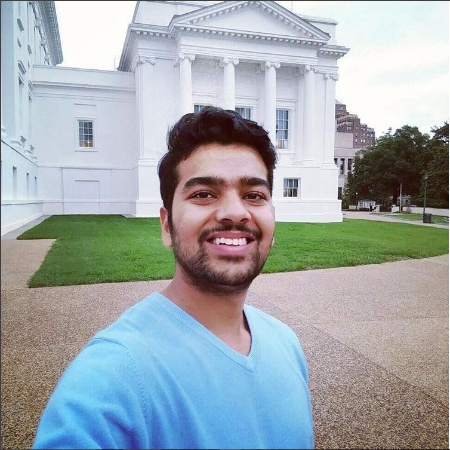
Dharak's research in the Du-Lab focused on developing the first Java version of ADAP-3D. ADAP-3D is an algorithm that Du-lab developed for directly detecting peaks from profile mass spectrometry data as 3D entities. Dharak is a Master's student at the Department of Computer Science at the University of North Carolina at Charlotte.
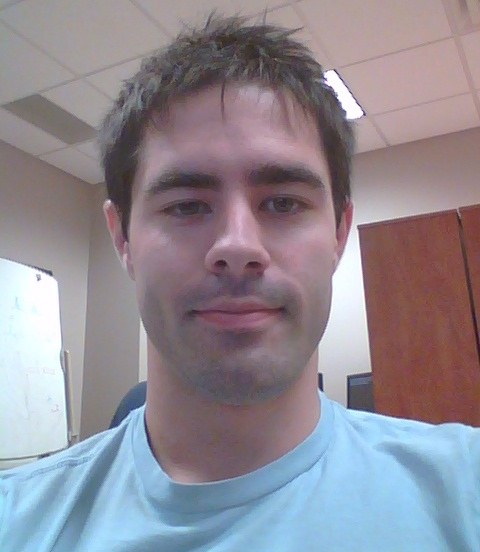
Matt's research in the Du-lab focused on addressing the BigData challenge of searching huge databases of metabolites for metabolite identification. Matt obtained his BS degree in Biophysics from the University of Michigan at Ann Arbor. He is currently a Professional Science Masters student at the Department of Bioinformatics and Genomics, University of North Carolina at Charlotte.

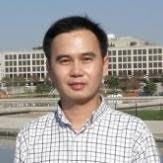
Peter made major contributions to the development of the GUI for ADAP-GC 2.0, the automated workflow for using Xlink-Identifier online, and Du Lab's website. He obtained his Professional Science Master's degree in Bioinformatics from the Univeristy of North Carolina at Charlotte. Peter is currently a bioinformatician at the Henry M. Jackson Foundation for the Advancement of Military Medicine.

Kyle's work at the Du-lab included developing a graphical user interface for visualizing search results from Xlink-Identifier and working closely with Yan and Peter for developing the GUI for ADAP-GC 2.0. He obtained his BS in biology, a minor in computer information systems, and Professional Sciences Masters degree at the University of North Carolina at Charlotte.

Jim translated the original Xlink-Identifier that was written in Matlab into C++ to improve the search performance.
Past Ph.D. Rotation Students
- Meng Niu
- Roshonda Barner
Past Undergraduate Students
- Zhuqiu Chen
- Xiao Song
Past High School Students
- Jerry Chen
- Eric Sun
- Jason Zhou


